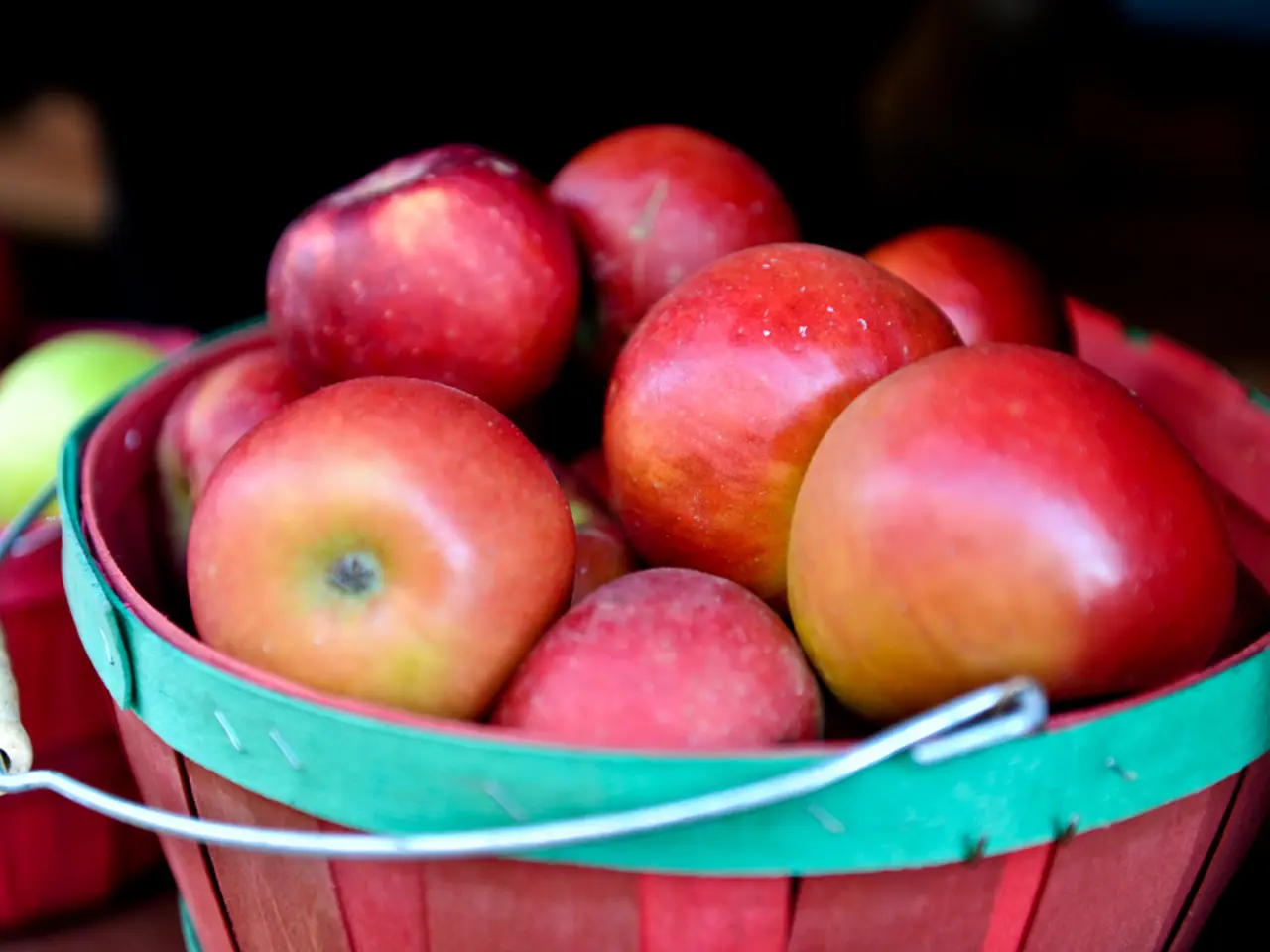Increase in US Tariffs Results in Decline for Kashmir's Horticulture Sector
In the picturesque Kashmir Valley, the horticulture sector, particularly apple farming and walnut production, plays a significant role in the local economy. However, recent global trade tensions, notably the US tariffs on various Indian goods, have created a challenging environment for these industries.
According to Bashir Ahmad Bashir, president of the Kashmir Valley Fruit Growers Association, the heavy import of apples and dry fruits from the US has reduced the demand and prices of local produce in recent years. This trend is concerning for the thousands of families who rely on the horticulture industry for their livelihoods.
The prices of apples and almonds in Kashmir have dropped due to heavy imports, with each kilogram of imported walnut costing between Rs 400-500, compared to Rs 300-350 for Kashmiri walnuts. This price disparity is further exacerbated by the fact that Kashmir's produce is organic, while imported apples are grown using pesticides.
Jammu and Kashmir contributes nearly 98% of India's walnut output, with over seven lakh families depending on the apple trade in Kashmir. The hike in export tariffs and the influx of cheaper US produce have severely impacted this sector. Furqan Akbar, a businessman who started a dry fruit export business with the United States as his main market, has seen his business shrink from two to three employees and his godown empty after US President Donald Trump increased export tariffs to 50%.
Traders in Kashmir claim that imports from the US are often undervalued, causing their business to suffer. Action was taken earlier in Mumbai when undervalued walnut and almond imports from the US were seized, but no further action has been taken since.
To protect the local economy, the Kashmir Valley Fruit Growers Association has sought an increase in import duties. The Kashmir Valley Fruit Growers and Dealers Union has urged the central government to increase the import duty on the Washington apple to 100% to protect the local industry. There are fears that a reduction in import duties on American apples may further hit the Kashmir horticulture industry hard.
Prof Nisar Ali, a prominent Kashmiri economist, has noted that apart from the handicrafts sector, horticulture is directly impacted by the tariff tussle between India and the US. He emphasises the need for strategic responses to mitigate these effects.
In response, India is diversifying its export markets and engaging in trade negotiations. The government has also emphasised protecting vital sectors like agriculture and dairy, which are crucial for livelihoods. These strategies aim to safeguard local horticulture interests while navigating the complexities of global trade tensions.
References:
[1] NDTV. (2021, February 27). India-US Trade Tensions: What's at Stake for India? Retrieved from https://www.ndtv.com/business/india-us-trade-tensions-whats-at-stake-for-india-2514621
[2] The Hindu. (2021, March 2). India-US trade tensions: What's at stake for India? Retrieved from https://www.thehindu.com/business/india-us-trade-tensions-whats-at-stake-for-india/article34093376.ece
[4] The Economic Times. (2021, February 26). US Tariffs on India: Impact on Apple Farmers in Kashmir. Retrieved from https://economictimes.indiatimes.com/news/politics-and-nation/us-tariffs-on-india-impact-on-apple-farmers-in-kashmir/articleshow/81398815.cms
[5] The Indian Express. (2021, February 27). US tariffs: India's resilience, policy adaptations to face US trade policies. Retrieved from https://indianexpress.com/article/business/us-tariffs-indias-resilience-policy-adaptations-to-face-us-trade-policies-7202234/
- The challenging environment for Kashmir's horticulture industry, specifically apple farming and walnut production, is partly due to global trade tensions, as the US has imposed tariffs on various Indian goods.
- The prices of local produce in Kashmir, such as apples and walnuts, have dropped due to heavy imports from the US, which has affected thousands of families who solely rely on this sector for their livelihoods.
- To protect the local economy, both the Kashmir Valley Fruit Growers Association and the Kashmir Valley Fruit Growers and Dealers Union have urged the central government to increase import duties, with requests to raise the import duty on the Washington apple to 100%.
- In an effort to safeguard local horticulture interests, India is diversifying its export markets and engaging in trade negotiations, while also emphasising the protection of vital sectors like agriculture and dairy.




